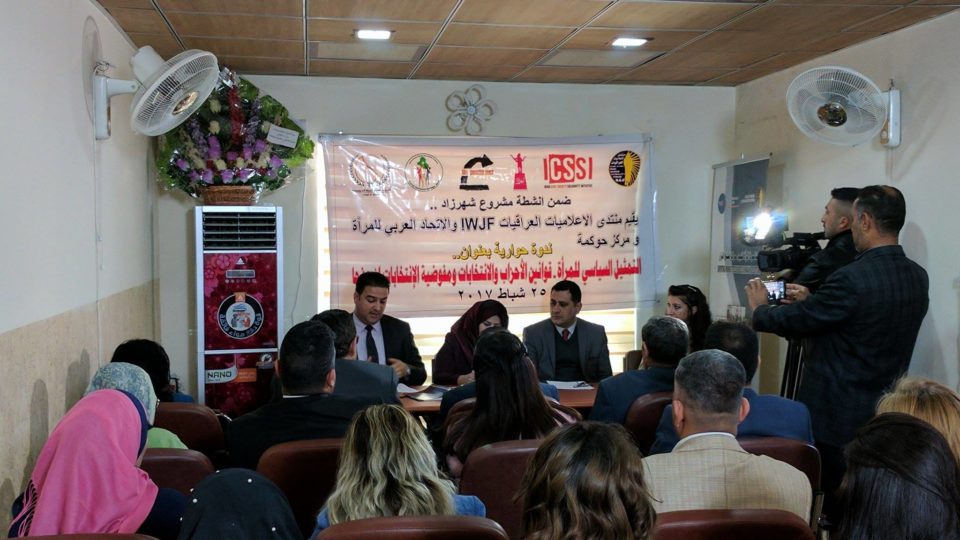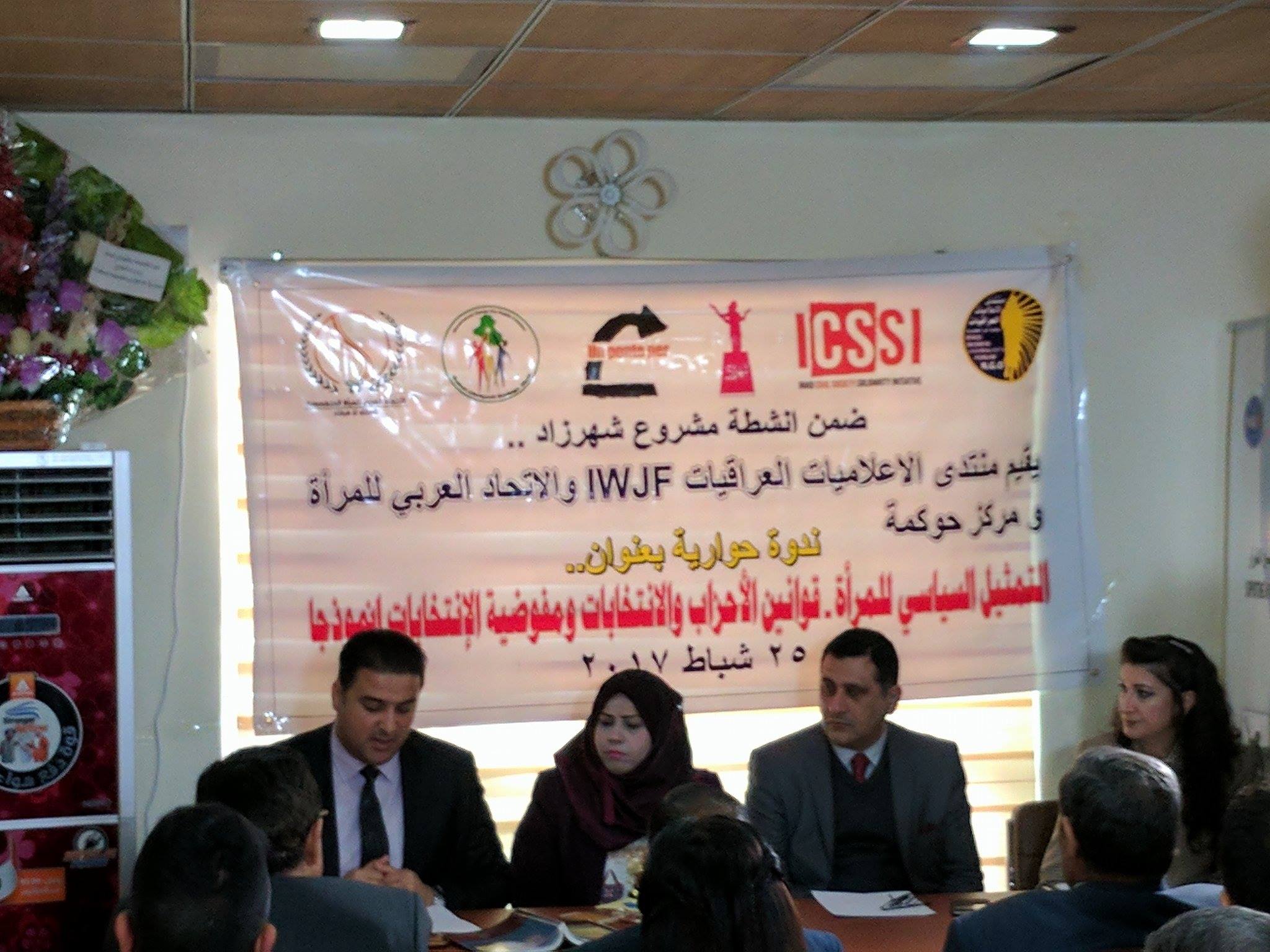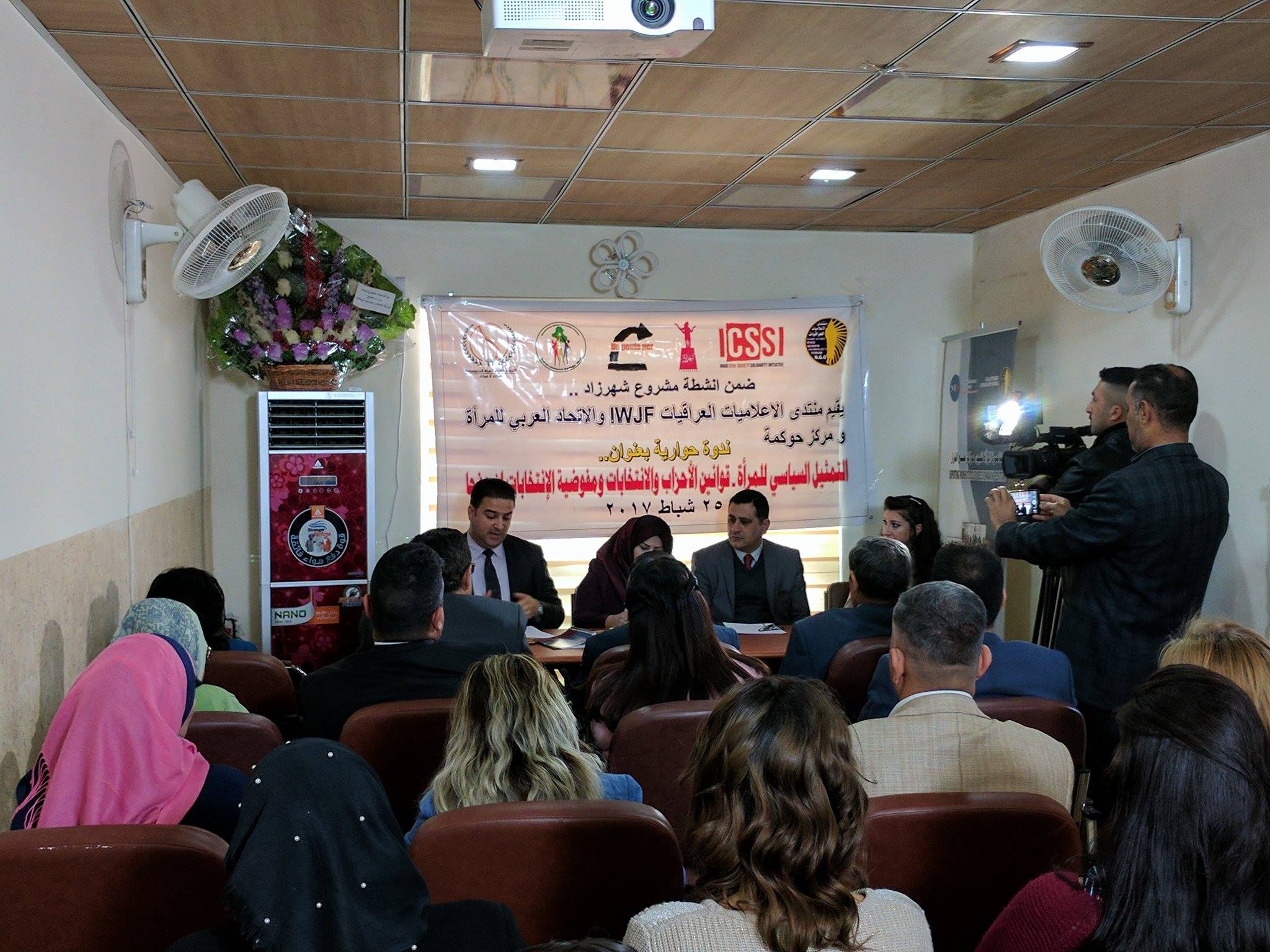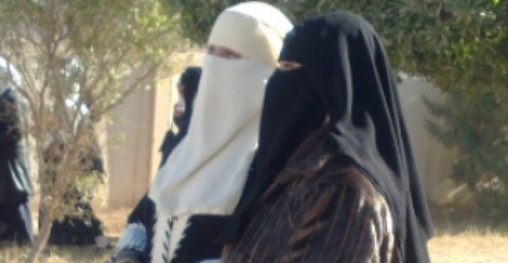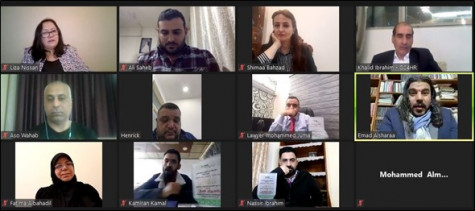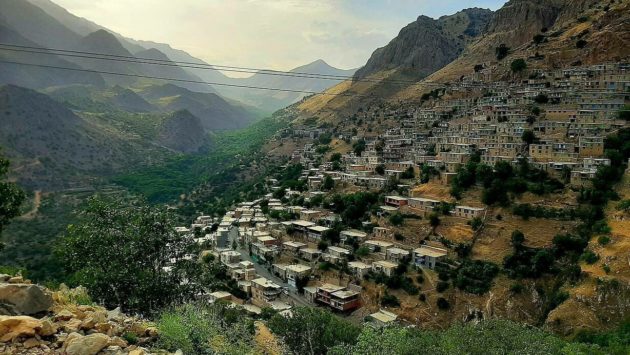Representation of Women in Political Parties, Electoral Commission and Legislative Authorities
On 25 February 2017, Shahrazad, the Iraqi Women’s Journalist Forum, the Arabica Women’s Union and the Governance Centre for Public Policies joined together to give a seminar about the political representation of women in political parties, legislative authorities, and the electoral commission.
During the Seminar, conducted by the lawyer, Ms Alyaa Alhasan, speakers explaned the ways the Iraqi government, the Iraqi parliament, and the electoral commission effectively exclude women from obtaining adequate and effective political representation. Dr Bushra Alaubady presented a paper about the representation of women in government, constitutional laws concerning women and the rates of political representation of women in Iraq
Ms Alaubady’s paper claimed that the representation of women in political parties is extremely low. She expressed her regret and sorrow at this marginalization that women face from the government as well as laws. She explained this marginalization by referencing a law of political parties that mentions women’s representation but fails to give any concrete number regarding the actual percentage of women who should be represented in parties. This lack of clear information makes the law vague, mere lip service to Iraqi women, and ultimately silences their voice in society. Her talk concluded with suggestions and recommendations that could improve the political reality for women, ensuring them a bigger role in the political sphere. Some of these suggestions include:
– modification of the first point of Article 11 from the political parties law which mentions the representation of women but does not give a definitive number stating how many women must be represented in parties.
– reconsideration of the election law regarding women who win in local elections allowing them to make use of the same quota system as their male counterparts
– self-nomination of women on both general the election and the quota lists.
– representation of women in the General Elections Commission.
– political empowerment of women through the provision of seminars and workshops offered by civil society.
– creation of a new law protecting women who participate in elections from being subject to smear campaigns aimed at ruining their reputations.
The seminar included two other papers: the first one was presented by the lawyer Firas Al-Khazali and included a discussion of the division of powers within government and law and its impact on women. Al-Khazali explained how government systems have evolved in Iraq, and how they come to exist in their form. He explained how it has become easier to form parties, and concluded his speech by giving a general definition of political parties. This was in preparation for the second paper, presented by the head of Governance Centre for Public Policies, Dr Muntaser Alaidany, who talked about the election law. He explained in detail both the positive and negative aspects of the law, and put forward three possible alternatives which might transform the current political situation in Iraq:,
1.) The existing parties might fail to manage the country which in turn might lead to change all the current parties and chose ones.
2.) Iraqis might take advantage of those current political parties which have large majorities and develop and reform them.
3.) Iraqis might work to cultivate open channels between political parties and religious ones, in a way similar to what has already happened between civil power and the Sadrists.
These suggestions by Alaidany might also come together in a combination of change and development, resulting in the formation of a parallel system that follows a single non-transferable vote system.
The seminar was supported by the Shahrazad project (which works to protect women human rights defenders) in collaboration with the Iraqi Civil Society Solidarity Initiative (ICSSI), the Italian organization, Un Ponte Per… (UPP). It was funded by the human rights program of the Embassy of the Federal Republic of Germany in Iraq and the Swiss Foundation Assistance International.

